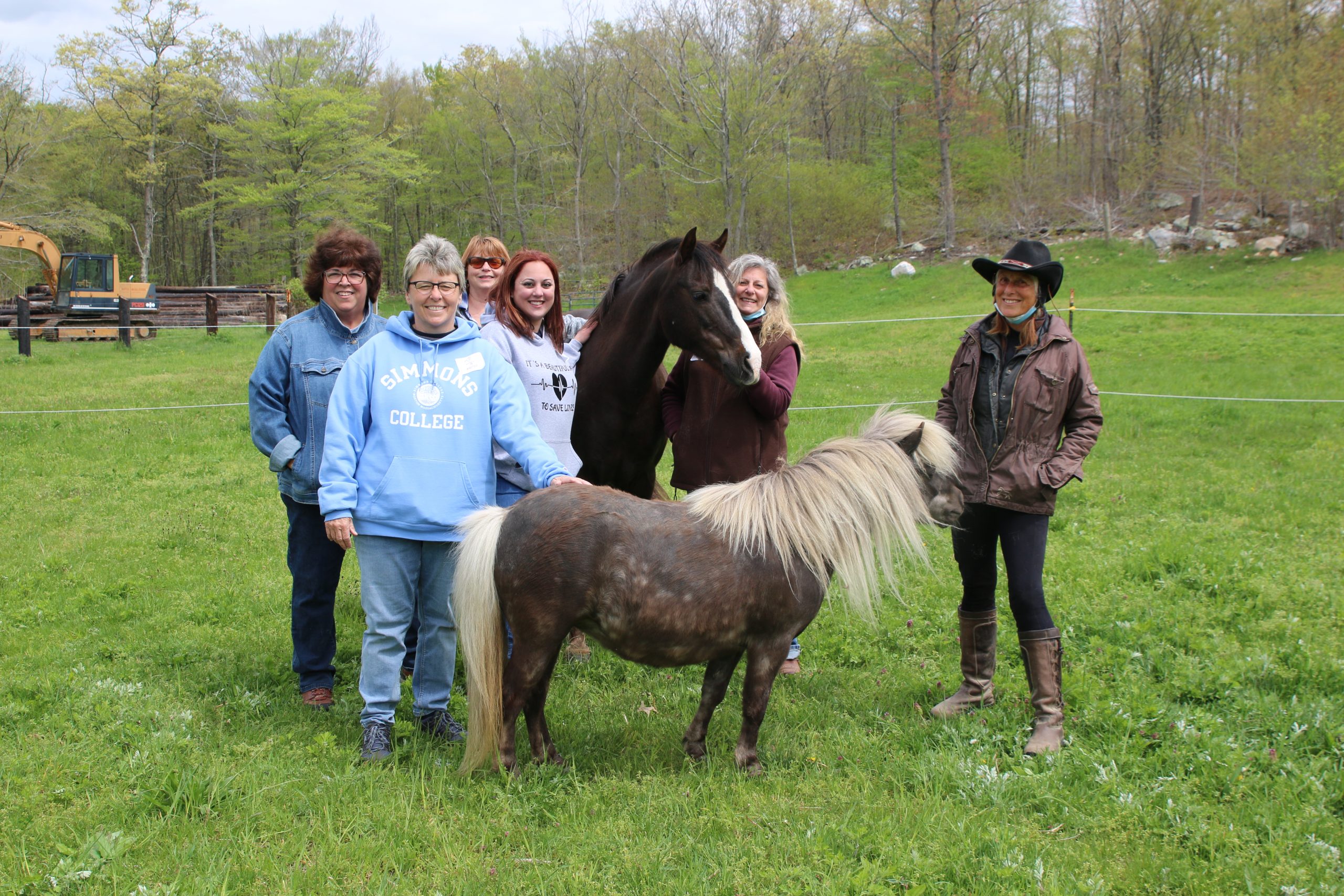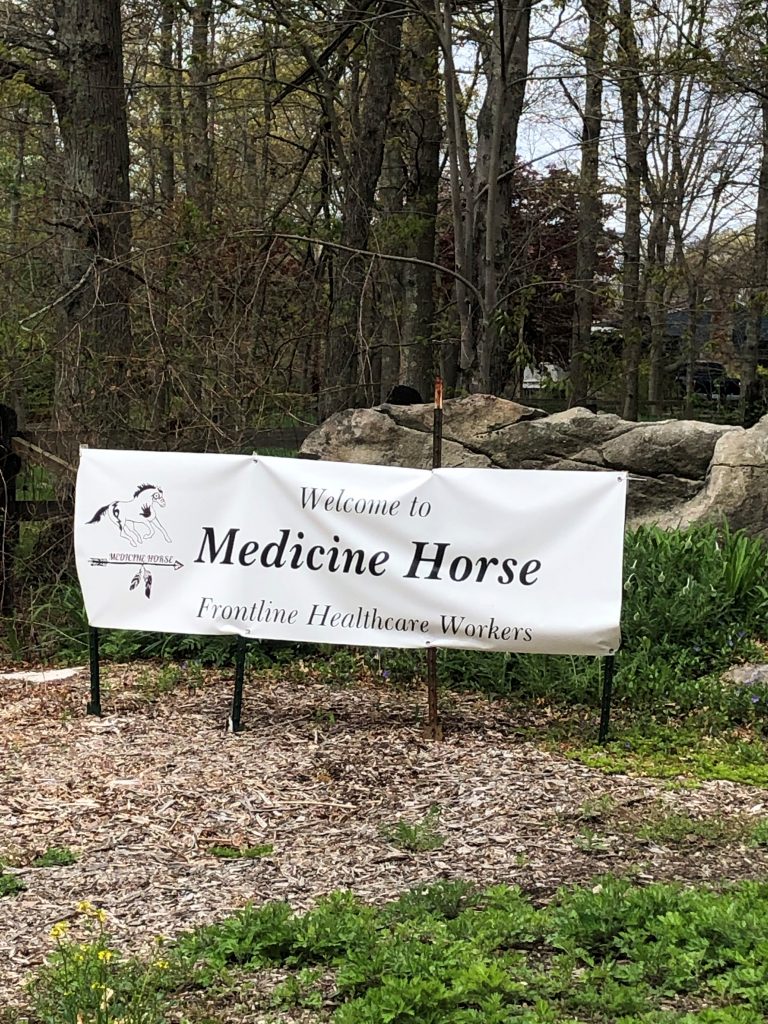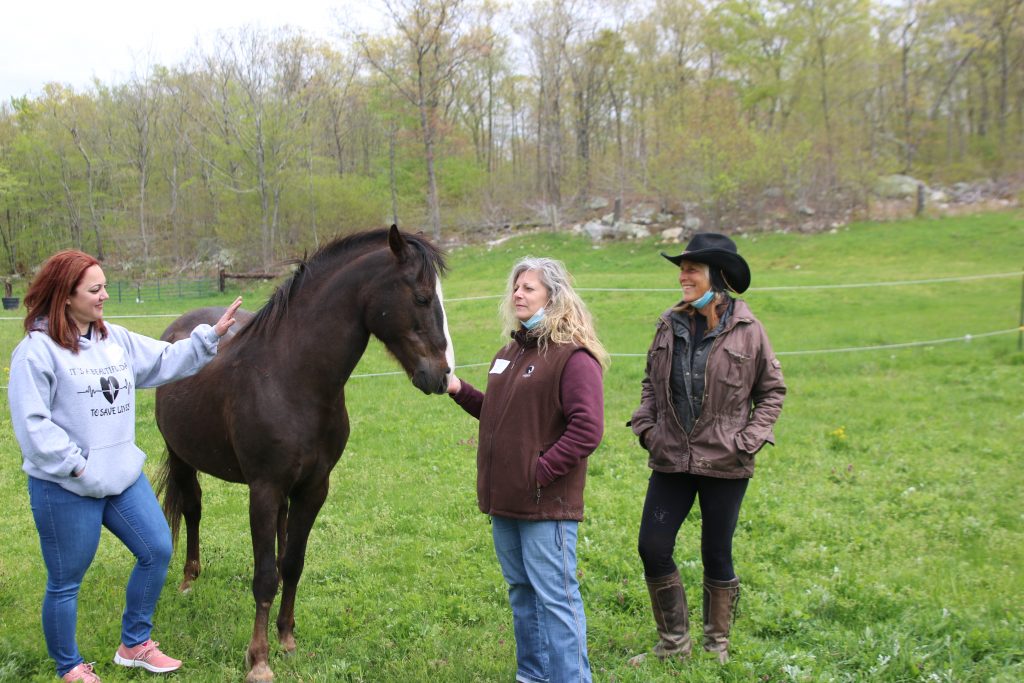
After More Than A Year Caring for Patients with COVID-19, Southcoast Nurses Find Peace and Calm Among Horses
Five Southcoast nurses on the frontlines of the pandemic for the past year drove to Silva Spirit Farm in Tiverton four Saturdays in a row in April and May of this year. There in the green fields, nearby woods and among magnificent horses, they found what they say they needed most: respite from the hectic pace of work, a few hours of quiet away from bleeping monitors and the illness brought on by COVID-19.
As much as they love their jobs, and love caring for patients, these nurses – as all frontline workers – have endured a year steeped in sickness. During the pandemic’s surges, upwards of 150 or more severely ill patients lay in Southcoast hospital beds. Most would recover and go home, but not all. It’s been an exhausting time with never enough opportunity for healthcare staff to care for themselves.
A Non-profit Therapeutic Practice Called Medicine Horse

The program at Silva Spirit Farm is a non-profit therapeutic and personal development practice called Medicine Horse.
Run by equine specialist Carol Ann Silva, psychologist Marjory Roberts Gray and social worker Jessica Veroline, Medicine Horse provides experiential healing and personal development through the aid of horses. Southcoast staff attended at no cost because of a generous grant from the Anthony F. Cordeiro Charitable Foundation along with other private donations.
Carol and Marjory say the program is beneficial for people who have experienced a great deal of stress and, as in the case of the Southcoast staff, have needed to cope with the onslaught of COVID-19 illness. According to Carol and Marjory, equine-assisted therapy is also helpful for other emotional and psychological challenges, such as anxiety, depression, addiction, relationship issues, and dealing with death.
Medicine Horse Team Members are Trained and Certified
The Medicine Horse team members were trained and certified by Eagala, the Equine-Assisted Growth and Learning Association. The therapeutic model used is experiential and all activities take place on the ground with the horses. Participants don’t sit or ride on the horses.
Horses are prey animals and have evolved to become very sensitive to their environment, says Carol and Marjory. Because they are highly perceptive, they are very aware of the behavior and emotions of those around them. This ability makes them ideal for helping people work through life’s challenges. They sense people’s emotions, and they become a metaphor for whatever is unsettling to someone. Program participants interact with the horses, observing and sensing how the animals respond to them and making their own interpretation of the animals’ reactions without feeling judged.
Providing Frontline Staff With Peace and Quiet
Jennifer Silvia, a Team Leader and nurse on Charlton Memorial’s Atwood 4, says that with a 6-year-old at home and a busy career as a nurse, there hasn’t been a lot of calm or quiet in her life as of late. “Coming to Silva Spirit gave me the quiet I needed. It gave me time to reflect.”
All the Southcoast participants remarked on the very powerful connection they had to the horses. Jennifer says of the horses’ ability to sense her emotions, “They know what you feel before you do.”
Gretchen Cody, a Charlton’s Electrophysiology Lab nurse, says the experience has been “magical.” She says the experience has been very beneficial. “I’ve had moments of visceral peace in the middle of my day” since beginning the program.

Christine Snow, RN, Manager of Patient Care in the Charlton Emergency Department, says the experience has been like “Letting go of the bricks in a backpack.” She says, “Our world can be so noisy and busy. It’s helpful to take a little time to be in nature.”
Martha Dufresne, who works as a nurse on Charlton’s Atwood 5 unit, agreed.
“Right from the first day we came here, there was a sense of calmness. I walked up to a horse, and the horse was so majestic, so calm. I couldn’t help but feel calmer myself.”
Jennifer says she is so thankful for this opportunity that she’s had to be at the horse farm. “I’ll miss my Saturdays here.”
Those interested in learning more about Medicine Horse and the services they provide or donating to the non-profit can find them on the web at www.medicine-horse.com/.

 Matt Guthrie
Matt Guthrie 